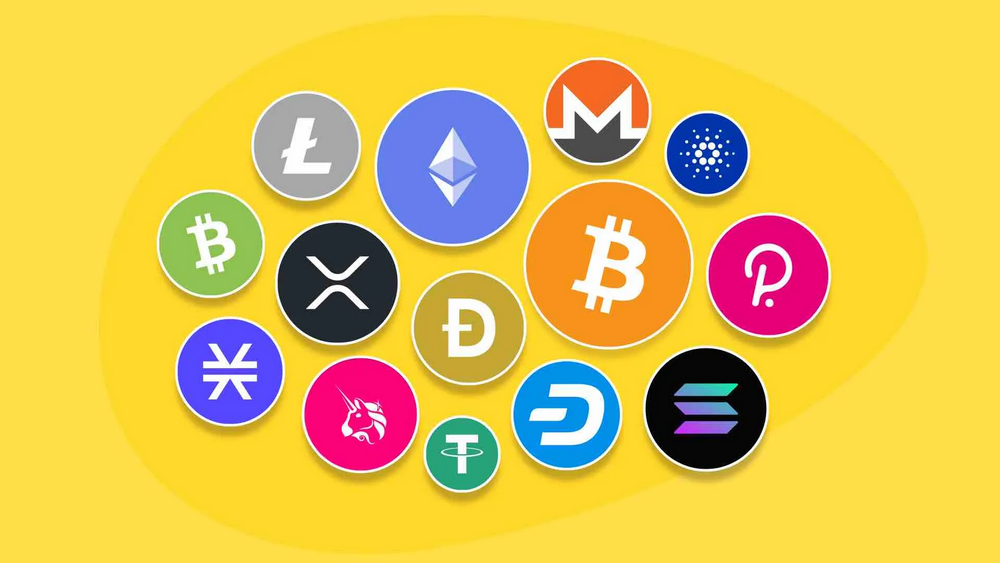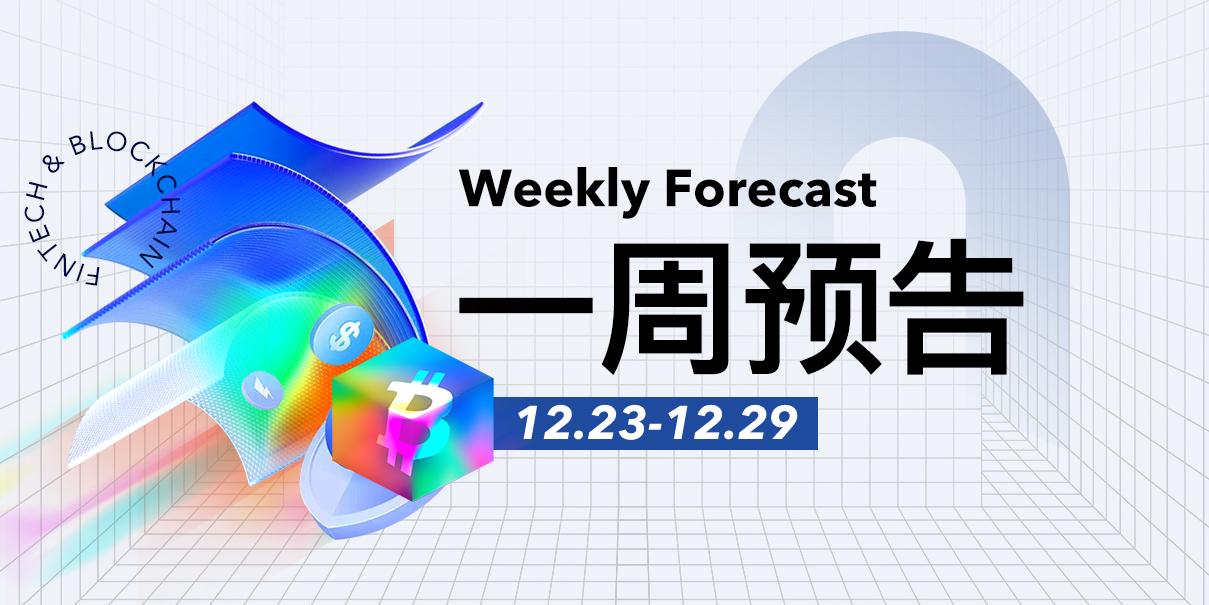-
 PA一线 · 3 小時前
數據:MRS、ADA、ENA等代幣將於下周迎來大額解鎖,其中MRS解鎖價值約3470萬美元
PA一线 · 3 小時前
數據:MRS、ADA、ENA等代幣將於下周迎來大額解鎖,其中MRS解鎖價值約3470萬美元PANews 12月22日消息,Token Unlocks數據顯示,MRS、ADA、ENA等代幣將於下周迎來大額解鎖,其中: Metars Genesis(MRS)將於北京時間12月23日上午8點解鎖約1000萬枚代幣,與現流通量的比例為11.87%,價值約3,470萬美元; Cardano(ADA)將於北京時間12月26日上午8點解鎖約1853萬枚代幣,與現流通量的比例為0.05%,價值約1,660萬美元;Ethena(ENA)將於北京時間12月25日下午3點解鎖約1,286萬枚代幣,與現流通量的比例為0.44%,價值約1,350萬美元; Murasaki(MURA)將於北京時間12月23日上午8點解鎖約2000萬枚代幣,與現流通量的比例為34.84%,價值約1220萬美元; Eigenlayer(EIGEN)將於北京時間12月25日凌晨3點解鎖約129萬枚代幣,與現流通量的比例為0.61%,價值約490萬美元; MMX(MMX)將於北京時間12月24日上午8點解鎖約167萬枚代幣,與現流通量的比例為1.11%,價值約180萬美元; Venom(VENOM)將於北京時間12月25日上午8點解鎖約3376萬枚代幣,與現流通量的比例為1.77%,價值約200萬美元; Coin98(C98)將於北京時間12月23日晚上7點解鎖約1653萬枚代幣,與現流通量的比例為1.88%,價值約270萬美元; Hooked Protocol(HOOK)將於北京時間12月25日上午8點解鎖約417萬枚代幣,與現流通量的比例為1.97%,價值約170萬美元; Karrat(KARRAT)將於北京時間12月23日上午8點解鎖約1125萬枚代幣,與現流通量的比例為6.45%,價值約440萬美元。
-
 PA一线 · 4 小時前
分析師:亞馬遜若將「一小部分」現金保留在比特幣中似乎比較合理
PA一线 · 4 小時前
分析師:亞馬遜若將「一小部分」現金保留在比特幣中似乎比較合理PANews 12月22日消息,根據華盛頓郵報報道,Morningstar分析師Dan Romanoff表示,儘管黃金通常被認為是最適合對沖通膨的資產,但比特幣可能是更有用的通膨對沖工具。過去五年,比特幣和黃金的價格升值都超過了通膨,比特幣的漲幅則相對大得多。
-
 一周预告 · 4 小時前
一週預告| MicroStrategy正式加入納斯達克100指數;Ethena(ENA)、Cardano(ADA)將解鎖價值千萬美元的代幣
一周预告 · 4 小時前
一週預告| MicroStrategy正式加入納斯達克100指數;Ethena(ENA)、Cardano(ADA)將解鎖價值千萬美元的代幣未來一週12月23日-12月29日,還有這些區塊鏈要聞值得你關注。
-
 PA一线 · 6 小時前
Michael Saylor:明年即將生效的會計規則或使MicroStrategy滿足標普500獲利要求
PA一线 · 6 小時前
Michael Saylor:明年即將生效的會計規則或使MicroStrategy滿足標普500獲利要求PANews 12月22日消息,根據Barrons報道,MicroStrategy董事長Michael Saylor在最近的一次採訪中並未明確表示公司是否可能被納入標普500,但他表示,鑑於對比特幣的樂觀看法,MicroStrategy公司明年可能因比特幣持有價值的增長報告數十億美元的季度淨收入,2025年即將生效的會計規則變化可能使MicroStrategy滿足加入標普500的盈利要求。
 PA日报 · 6 小時前
PA日報| 至少10家公司正考慮採用MicroStrategy的比特幣戰略;本週NFT買家數環比上漲92.39%,交易額環比增長32.93%達3.022億美元
PA日报 · 6 小時前
PA日報| 至少10家公司正考慮採用MicroStrategy的比特幣戰略;本週NFT買家數環比上漲92.39%,交易額環比增長32.93%達3.022億美元去中心化流動性協議THORChain發布V3版本;Wormhole DAO將於明年第一季上線;薩爾瓦多總統已加大每日比特幣購買量,中期目標是再購買2萬枚;資管公司GraniteShares申請加密貨幣相關的槓桿ETF,以追蹤MicroStrategy和Robinhood等公司。
-
 Foresight News · 7 小時前
行情下探,頂級交易員如何看待後市?
Foresight News · 7 小時前
行情下探,頂級交易員如何看待後市?賣出逃頂還是膽大抄底?
-
 Weilin · 7 小時前
傳統銀行入局Layer 2,德意志銀行基於ZKsync構建,已測試多個用例
Weilin · 7 小時前
傳統銀行入局Layer 2,德意志銀行基於ZKsync構建,已測試多個用例傳統金融機構也開始下場做Layer2了。德意志銀行正在推出基於以太坊的Layer 2解決方案,該項目名為Project Dama 2,其測試版已經在11月推出,預計在明年獲得監管機構批准後正式推出。
-
 Yuliya · 9 小時前
四位頂尖投資人激辯:2024加密貨幣市場成敗得失與2025預測
Yuliya · 9 小時前
四位頂尖投資人激辯:2024加密貨幣市場成敗得失與2025預測Robot Ventures、Dragonfly與Superstate的回顧與展望,BTC 2025年或將達到18萬美元。
-
 金色财经 · 9 小時前
北韓駭客從加密平台竊取的錢都做什麼了?
金色财经 · 9 小時前
北韓駭客從加密平台竊取的錢都做什麼了?與北韓有關的駭客在47 起事件中竊取13.4 億美元,佔當年被盜總金額的61%,佔事件總數的20%。
-
 PA一线 · 10 小時前
Wormhole DAO將於明年第一季上線
PA一线 · 10 小時前
Wormhole DAO將於明年第一季上線跨鏈協議Wormhole 表示Wormhole DAO 將於2025 年第一季上線。要參加第一次投票,W 持有者需要進行治理質押。 Wormhole 質押獎勵計畫(SRP) 正在所有鏈(EVM + Solana) 中進行,首期獎勵池至少分配5,000 萬枚W 代幣。
- 加密貨幣流通市值(7天)$3,541,763,733,716Market Cap恐懼貪婪指數(近30天)
 PA一线 · 10 小時前
曾波段交易PEPE獲利492萬美元的某聰明錢在四小時前再度建倉4753億枚PEPE
PA一线 · 10 小時前
曾波段交易PEPE獲利492萬美元的某聰明錢在四小時前再度建倉4753億枚PEPE根據鏈上分析師@ai_9684xtpa 監測,「過去六個月透過$PEPE 波段獲利492 萬美金的聰明錢」四小時前又建倉了4753 億枚PEPE,價值820 萬美元,均價0.00001724 美元,目前已已浮14.2 萬美元。 12 月以有5 隻巨鯨對PEPE「下了重註」
-
 PA一线 · 10 小時前
目前至少10家公司正考慮採用MicroStrategy的比特幣策略
PA一线 · 10 小時前
目前至少10家公司正考慮採用MicroStrategy的比特幣策略目前至少有10 家公司正在或考慮採用MicroStrategy 的比特幣策略,包括人工智慧公司Genius Group等。
-
 PA一线 · 11 小時前
某鯨魚疑似賣出2.5萬枚SOL獲利31.3萬美元
PA一线 · 11 小時前
某鯨魚疑似賣出2.5萬枚SOL獲利31.3萬美元根據鏈上分析師@ai_9684xtpa 監測,地址HHqC...y8Aqu 疑似賣出兩個月前以169.6 美元建倉的2.5 萬枚SOL ,若賣出將獲利31.3 萬美元。該巨鯨目前仍持有50% 的SOL 部位(即2.5 萬枚),浮盈31 萬美元;這5 萬枚SOL 最多時浮盈了473.8 萬美元。
-
 PA一线 · 12 小時前
去中心化流動性協議THORChain發布V3版本
PA一线 · 12 小時前
去中心化流動性協議THORChain發布V3版本去中心化流動性協議THORChain 發布V3 版本,此次更新提供了高級互通性和智能合約功能,包括升級至Cosmos SDK v0.50、從Tendermint 切換到CometBFT、引入Cosmos 生態系統兼容性、加入Rujira 應用層等。
-
 PA一线 · 12 小時前
資管公司GraniteShares申請加密貨幣相關的槓桿ETF,以追蹤MicroStrategy和Robinhood等公司
PA一线 · 12 小時前
資管公司GraniteShares申請加密貨幣相關的槓桿ETF,以追蹤MicroStrategy和Robinhood等公司總部位於紐約AUM 超100 億美元的資管公司GraniteShares 申請新的槓桿ETF,追蹤Riot Platforms、Marathon Digital、MicroStrategy 和Robinhood 等公司。這些基金將同時做多和做空。做多2 倍的ETF 將產生兩倍於對應股票的每日收益。
-
 深潮TechFlow · 12 小時前
鏈上用戶年度報告:月新增用戶數最高達1940萬,Base鏈貢獻近7成增量
深潮TechFlow · 12 小時前
鏈上用戶年度報告:月新增用戶數最高達1940萬,Base鏈貢獻近7成增量大多數區塊鏈在將普通用戶轉化為高價值貢獻者方面仍處於起步階段。
-
 PA一线 · 13 小時前
某鯨魚/機構自昨晚起贖回約127萬枚EIGEN並在鏈上出售
PA一线 · 13 小時前
某鯨魚/機構自昨晚起贖回約127萬枚EIGEN並在鏈上出售從昨晚7 點以來,他們已經有4 個地址從EigenLayer 質押合約中贖回1,270,507 枚EIGEN(502 萬美元)並在鏈上正在出售換為ETH 或USDC。已經贖回EIGEN 並轉移出售的4 個地址。前幾天EIGEN 最高漲到5.6 美元時他們這891.7 萬枚EIGEN 浮盈了1765 萬美元。不過現在已經跌回成本線附近。
-
 白话区块链 · 14 小時前
加密貨幣交易中的心理層面:心態為何如此重要?
白话区块链 · 14 小時前
加密貨幣交易中的心理層面:心態為何如此重要?心理關口在加密貨幣交易中起著關鍵作用,交易者通常在整數價格點附近做出情緒化決策,形成重要的支撐和阻力區,而這些關口的反應會影響市場波動和價格走勢。
-
 PA一线 · 14 小時前
研究:新加坡位居全球區塊鏈和加密貨幣技術國家榜首,美國排名第五
PA一线 · 14 小時前
研究:新加坡位居全球區塊鏈和加密貨幣技術國家榜首,美國排名第五ApeX 最近的一項研究列出了區塊鏈和加密貨幣技術領域的十大領先國家,新加坡位居榜首。該研究使用綜合指數對各國進行評估,該指數透過三個核心指標反映區塊鏈的發展和採用:區塊鏈專利、區塊鏈技術就業和加密貨幣交易所數量。
-
 PA一线 · 14 小時前
本週NFT交易金額較上季成長32.93%達3.022億美元,買家數較上季成長92.39%
PA一线 · 14 小時前
本週NFT交易金額較上季成長32.93%達3.022億美元,買家數較上季成長92.39%以太坊網路NFT 交易額飆升至1.999 億美元。在過去七天內成長了73.56%。比特幣網路NFT 排名第二,交易額下降23%,為3,970 萬美元。不過,該網路的用戶參與度成長良好,買家數量達到38,987 人。 Solana 網路以2,990 萬美元的交易額鞏固了第三的位置,環比增長了5.14%,共有104,958 名買家,環比增長108.45%。
更多內容 Dec . 22
Dec.22



































